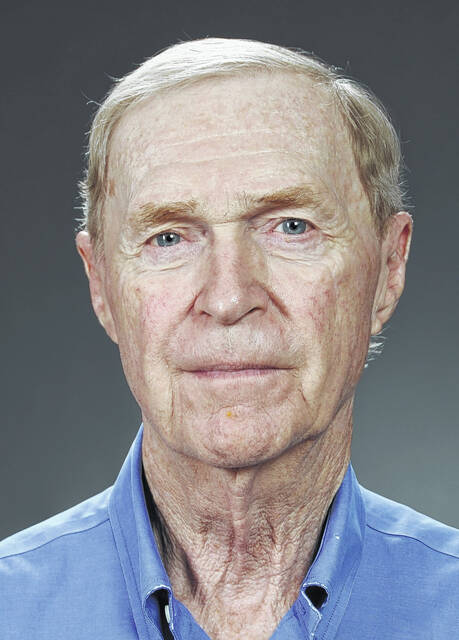We recognize and honor physical bravery, but we seldom recognize moral courage. Both physical bravery and moral courage benefit society. We should give those who exhibit exceptional moral courage the recognition that they deserve. An appropriate annual date for Moral Courage Day in America is the first day of January when we reflect on the past and the future. The first two citizens who should be honored for moral courage are:
Michael Richard Pence, Vice President of the United States, and Bradford Jay Raffensperger, Georgia Secretary of State.
Both men endured immense pressure from a U.S. President who demanded that they throw American democracy into chaos. Both men stood firm, exhibiting exceptional moral courage.
Any list of people who deserve recognition for moral courage would be incomplete. We err by failure to recognize them, but the greater error would be failure to start the recognition process.
People who have displayed moral courage include the following.
Rosa Parks refused to relinquish her bus seat to a white man. In the 1950s, Black citizens in Alabama were required to give their bus seat to a white bus passenger or get off the bus if there weren’t enough seats for the white riders. Rosa Parks was fired by her employer, and she received death threats as a result of her display of moral courage.
From about 1840, American women began to seek the right to vote in elections of public officials. During the next several decades, thousands of women risked ridicule but displayed the moral courage to campaign for the right to vote. Two of the most prominent leaders were Susan B. Anthony and Elizabeth Cady Stanton, but there were also many other leaders. In 1875, the U.S. Supreme Court held that women did not have a constitutional right to vote. An Amendment to the U.S. Constitution that was ratified in 1920 assured women the right to vote.
Manal al-Sharif is a Saudi Arabian woman who dared to drive an automobile. She was arrested for “inciting women to drive,” and she was jailed. Her employer, Saudi Aramco, fired her. She now lives in Australia.
Recently, Iranian women have been protesting their treatment by Iran’s “Morality Police.” A November 21, 2022, report in the Washington Post indicated that 17,451 people have been arrested, and 419 protesters have been killed including 60 children.
Mahatma Gandhi was an Indian Hindu who championed non-violent political methods to obtain India’s independence from the British who dominated and governed India for almost 200 years. Gandhi also advocated for what we call civil rights and women’s rights in both South Africa and India. He worked to maintain peace between India’s Hindu and Muslim populations. Gandhi was jailed 13 times for his non-violent political behavior. He was assassinated by a fellow Hindu. The British withdrew from India in 1947.
Florence Nightingale was an English nurse who cared for wounded soldiers during the Crimean War in the 1850s. Medical science was primitive. Nightingale realized that more wounded soldiers were dying from infectious diseases and wretched hospital conditions than from battle wounds. In fact, ten times more soldiers died from typhus, typhoid, cholera, and dysentery than from battle wounds. She confronted the government during and after the war with data and succeeded in her efforts to improve medical care.
George Washington, our first President, was popular and could have remained in office after his second term, because term limits had not been established. But he exhibited the moral courage to step down, effecting a peaceful transfer of power and setting a crucial precedent for functional democracy.
Abraham Lincoln had to endure criticism and the disenchantment of many citizens for more than two years because the northern military forces were not achieving battlefield success. But President Lincoln stayed the course and eventually identified the military leaders who could win. Lincoln’s moral courage preserved the United States, and without that accomplishment, America would not be the wealthy and powerful nation that it is today. Leo Tolstoy, the famed Russian author of War and Peace, visited a remote village in the Caucasus Mountains where the village chief had heard about Lincoln. The chief asked Tolstoy what made Lincoln great. Tolstoy replied that it was his “moral power” and the “greatness of his character.”
Jack Stevenson is retired. He served two years in Vietnam as an infantry officer, retired from military service, and worked three years as a U.S. Civil Service employee.He also worked in Egypt as an employee of the former Radio Corporation of America (RCA). Currently, he reads history, follows issues important to Americans, and writes commentary for community newspapers.





